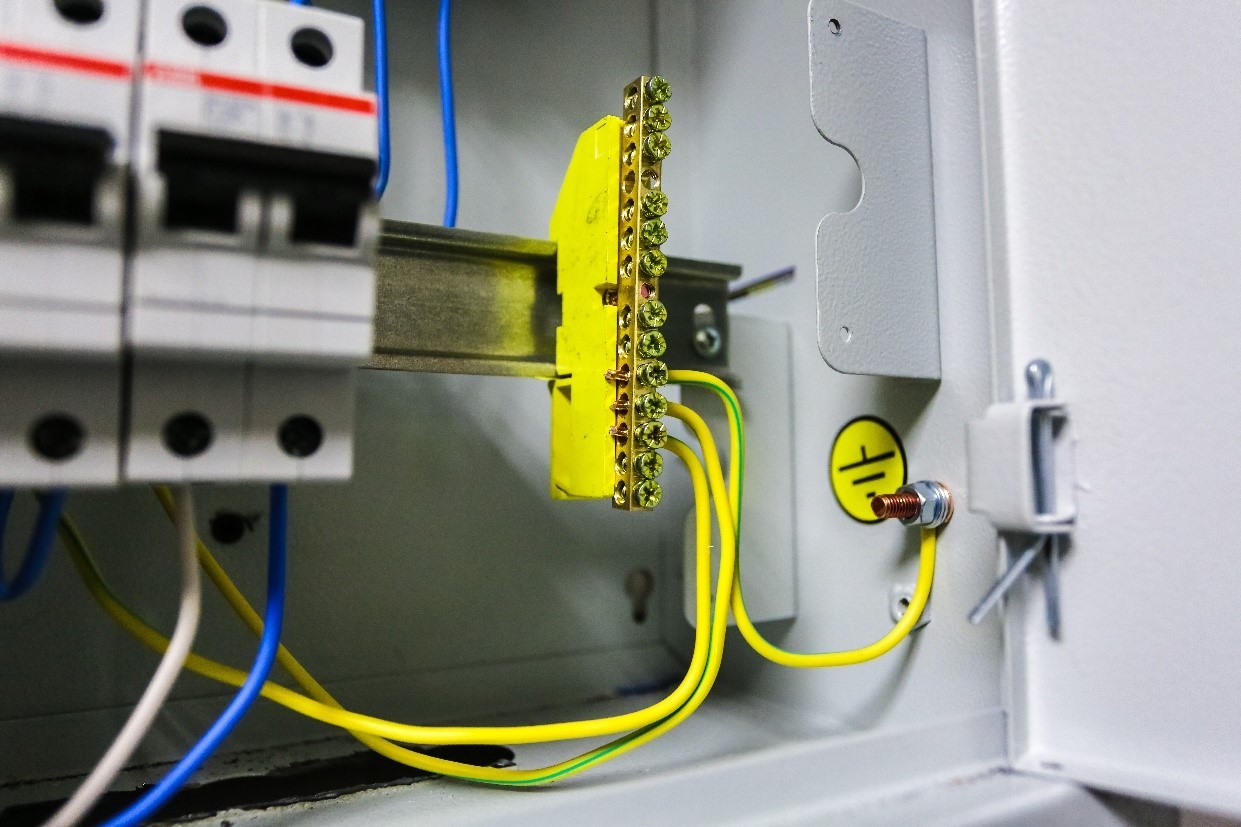These days, it’s virtually impossible to live without electricity, and if you run a business, your need for power is even more important. Having an efficient and safe electrical system is vital to creating a safe environment for your workers and customers to enjoy.
One of the most important parts of your electrical system is grounding, ensuring that your connection has a neutral place to go in case of a malfunction. But why is electrical ground testing so important, and how is it done? We’re here to explain.
Importance and Risks of Electrical Ground Testing
So, what is electrical ground testing in the first place? Essentially, electrical circuits should have an avenue to get to the ground with little to no resistance. In case someone accidentally gets in the way of the circuit, having a path to the ground can prevent serious injury or damage to property. Ground testing looks at this path to the ground and makes sure it meets safety requirements. These requirements can vary depending on how big your electrical system is.
Ground testing can come in two different types. These tests are typically performed when a facility is built, getting you off to a good start, as well as on a routine basis to ensure the system continues to perform as it should.
Electrical ground testing is a key element to the overall safety of your facility. If your workplace has faulty grounding and a malfunction occurs, your equipment and data could be damaged or even ruined in the process. Anyone in the immediate vicinity could also be seriously injured or even killed. Your entire team can work more confidently when they know they’re being protected against potential electrical issues.
If your grounding is inadequate, your entire electrical system runs the risk of experiencing voltage surges and spikes, which could cause significant damage. Finally, bad grounding could cause intermittent faults, resulting in random shocks and failures that can interrupt your work processes at any given moment. These faults are often hard to trace back to your grounding, so you may think that it’s the fault of the equipment, and you may be led to replace something that isn’t broken.
In short, electrical ground testing is an important preventative measure to ensure your workplace is protected in the case of an electrical malfunction. Your employees, your equipment, and your information will all be safer because of it.
Ground Testing Techniques
Now that you know why electrical ground testing is so important, how is it performed? You can perform electrical ground testing on your own, but we must stress the value of bringing in a certified electrical engineer. These experts have the know-how to test your circuit safely and make any necessary changes if your grounding does not meet safety requirements.
There are quite a few ways to test ground resistance, but four of the most common techniques include the soil resistivity test, the fall-of-potential method, the stakeless method, and the selective method.
The soil resistivity test is the most common of these four methods. Since soil has so many layers, the resistance can easily vary. An electrical engineer will use a ground resistance tester to analyze the soil profile and determine the soil’s resistance. These tests can be performed repeatedly in the same area to test all the soil in the immediate area.
Individual grounding stakes or entire grounding systems can be tested with the fall-of-potential method. Your electrical engineer will disconnect the grounding stake in question (at this point, the disconnected stake is now known as the Earth electrode) and connect it to a testing apparatus before embedding two other stakes in line (inner and outer). Then, a current is released through the stakes to measure your system’s ability to dissipate electricity.
Many people prefer the stakeless method since it doesn’t require you to disconnect electrodes or make sure you’re in the right location for the test stakes. During this test, clamps are set up somewhere near the connecting cable, then a current is released through one clamp and measured at the other clamp. The loop resistance of the ground is then calculated.
Finally, the selective method is quite similar to the fall-of-potential method, but it does not require you to disconnect the Earth electrode. Instead, a clamp meter is put in place near the Earth electrodes, and the inner and outer stakes are set up just like in the fall-of-potential method. Then, an electrical engineer will connect the clamp meter and the stakes to the tester.
No matter which method is used, your electrical engineer will be able to ensure that your system is providing a quick and unimpeded path to the ground. If not, they can identify the issue and make the necessary corrections to keep your system running smoothly and safely.
Work with MTAEE
Again, while you can perform electrical ground testing on your own, it’s best to work with an expert. That way, your electrical engineer can let you know of the safety standards your system should meet, and if your system doesn’t make the cut, they can recommend upgrades or new components to make sure you’re in compliance. You can avoid hefty fines from OSHA and ensure that your workers and your equipment are always safe from electrical risks.
At Mark Thomas & Associates Electrical Engineers (MTA), we are proud to perform electrical ground testing and many other electrical services to clients throughout San Diego, Southern California, and the West Coast. Some of our other services include arc flash analyses, coordination studies, power system analyses, and more. In everything we do, we strive to offer superior customer service and thorough testing at some of the most competitive rates in the area. We’re happy to answer any questions you might have about your electrical system and make recommendations to improve your system’s safety and efficiency.
For more information about scheduling electrical ground testing or another electrical safety service, contact the MTA team today.

